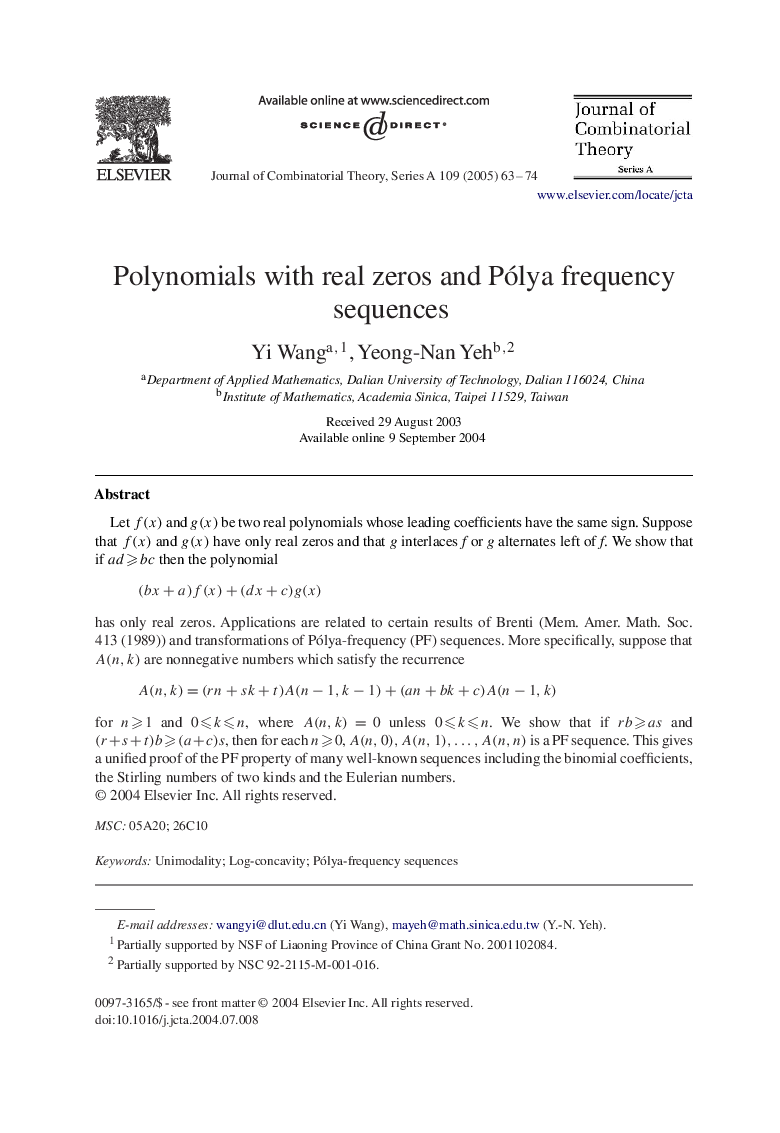| Article ID | Journal | Published Year | Pages | File Type |
|---|---|---|---|---|
| 9515580 | Journal of Combinatorial Theory, Series A | 2005 | 12 Pages |
Abstract
Let f(x) and g(x) be two real polynomials whose leading coefficients have the same sign. Suppose that f(x) and g(x) have only real zeros and that g interlaces f or g alternates left of f. We show that if ad⩾bc then the polynomial (bx+a)f(x)+(dx+c)g(x)has only real zeros. Applications are related to certain results of Brenti (Mem. Amer. Math. Soc. 413 (1989)) and transformations of Pólya-frequency (PF) sequences. More specifically, suppose that A(n,k) are nonnegative numbers which satisfy the recurrence A(n,k)=(rn+sk+t)A(n-1,k-1)+(an+bk+c)A(n-1,k)for n⩾1 and 0⩽k⩽n, where A(n,k)=0 unless 0⩽k⩽n. We show that if rb⩾as and (r+s+t)b⩾(a+c)s, then for each n⩾0, A(n,0),A(n,1),â¦,A(n,n) is a PF sequence. This gives a unified proof of the PF property of many well-known sequences including the binomial coefficients, the Stirling numbers of two kinds and the Eulerian numbers.
Keywords
Related Topics
Physical Sciences and Engineering
Mathematics
Discrete Mathematics and Combinatorics
Authors
Yi Wang, Yeong-Nan Yeh,
